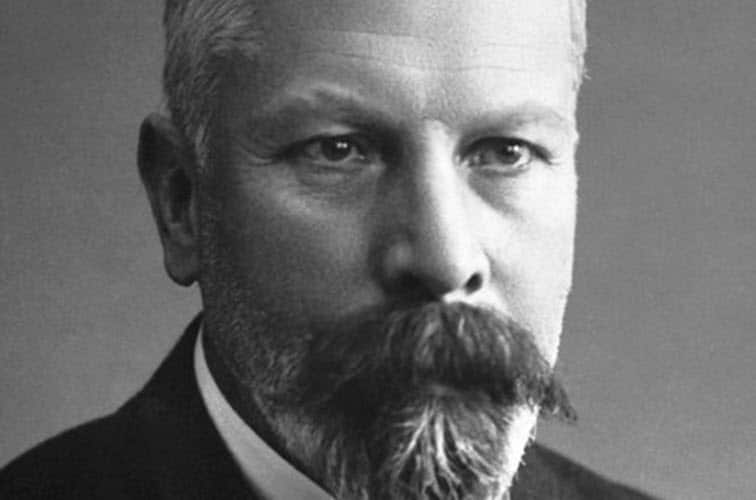Eduard Buchner (20 May 1860 – 13 August 1917) was a German chemist who made significant contributions to the field of biochemistry. In 1907, Buchner received the Nobel Prize in Chemistry.
Life and Career
He was born on 20 May 1860, in Munich, Germany. He studied chemistry and received his doctorate from the University of Munich in 1888.
After completing his doctorate, Buchner worked at various universities and research institutions. He initially focused on studying the fermentation process, which was of great interest to the brewing industry at the time. Buchner’s research aimed to understand how fermentation occurred and what factors were involved.
In 1897, while conducting experiments on yeast extracts, Buchner made a groundbreaking discovery that revolutionized biochemistry. He found that by breaking open the cells of yeast and separating the cellular components, he could obtain a solution that could ferment sugar into alcohol without the presence of living yeast cells. This demonstrated that the fermentation process was driven by enzymes, which he called “zymase.” This discovery laid the foundation for the field of enzymology and earned Buchner the Nobel Prize in Chemistry in 1907.
He died on 13 August 1917, in Focșani, Romania.
Award and Legacy
In 1907, Buchner received the Nobel Prize in Chemistry for his discovery of the fermentation process and the role of enzymes.
His discovery had a profound impact on the understanding of biochemical processes. It established the concept of enzymatic reactions and demonstrated that biological processes could be studied outside the living organism. This breakthrough led to numerous advancements in the fields of biochemistry, enzymology, and fermentation technology.
Today, Buchner’s work is still celebrated and recognized as a fundamental contribution to science. His discoveries paved the way for further research on enzymes and their role in biological processes, helping scientists develop a deeper understanding of metabolism and the biochemical basis of life.

